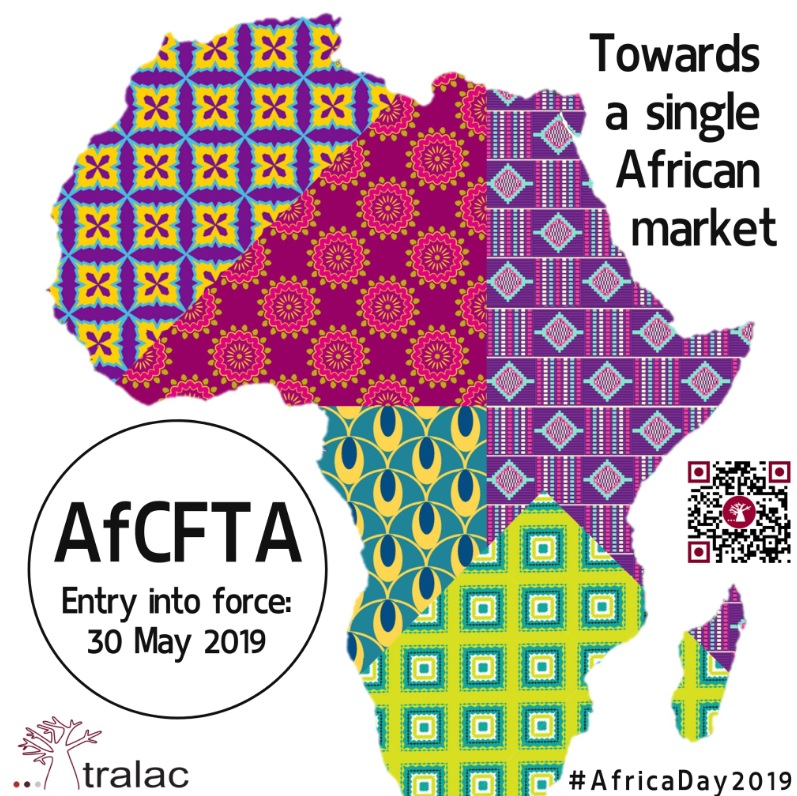A commentary on AfCFTA to be launched in AU Summit in Niger
The AU Commission has urged the African businesses to take the lead in picking up the trade and economic opportunities in the AfCFTA that entered into force on May 30.

- Country:
- Niger
The African Union, since its launching in South Africa’s Durban on July 9, 2002, has been intensely playing a vital role in encouraging economic development and political stability through increased cooperation among its members. The vision of African Union is – an integrated, prosperous and peaceful Africa, driven by its own citizens and representing a dynamic force in the global arena.
The establishment of African Union was intended to replace the Organization of African Unity’s (OAU) principle of fighting apartheid and giving weapons, training and military bases to rebel groups fighting white minority and colonial rule, and in reverse, spearhead Africa’s development and integration. The mission of the African Union Commission, according to its official homepage, “An efficient and value-adding institution driving the African integration and development process in close collaboration with the African Union Member States, the Regional Economic Communities and African citizens.”
The upcoming African Union (AU) Summit is slated to take place in Niger’s capital, Niamey on July 7, 2019. Niger is hosting the African Union Summit for the first time. The First Lady of Niger, Aissata Issoufou and the country’s Ministry of Health will encourage the stakeholders to dedicatedly work toward the elimination of Neglected Tropical Diseases in Africa.
The upcoming AU Summit in Niger’s capital, Niamey is going to launch the historic African Continental Free Trade Area. With ratification from the Saharawi Republic and Sierra Leone on April 29 this year, African Continental Free Trade Area (AfCFTA) reached the threshold of 22 ratifying states and now it can be put into implementation to allow the trade of goods and services with virtually no restraints. The free-trade area is the largest in the world in terms of participating countries since the formation of the World Trade Organization, outlined in the African Continental Free Trade Agreement among 52 out of 55 AU nations.
On Wednesday, June 20, the AU Commission has urged the African businesses to take the lead in picking up the trade and economic opportunities in the AfCFTA that entered into force on May 30. The agreement has been lauded by many international experts terming it as a game-changer for intra-African trade. The experts believe that if AfCFTA is properly implemented, it will be able to endow with a framework to ease the cost of performing business in Africa. Once the agreement is launched at the AU Summit in Niamey, it will enter into its operational phase.
Currently, the intra-Africa trade is gloomy and thwarted due to border delays. The high tariffs and complicated rules of custom procedures are big constraints in performing intra-Africa trade. High logistics cost associated with doing business is another hindrance in trading activities.
AfCFTA aims to address the hindrances by creating a single continental legal regime for trade matters. The agreement initially requires members to remove tariffs from 90 percent of goods, allowing free access to commodities, goods, and services across the continent. It not only has immense potential to increase intra-regional trade, enhancement of production, economy, creation of jobs in diverse sectors, improvement of the standard of livings of the Africans due to rising income are also expected in the next few years.
According to an estimation done by the United Nations Economic Commission for Africa, the agreement will enhance intra-African trade by 52 percent by 2022. Moreover, the intention of establishing a Continental Customs Union will promote industrial development and boost the competitiveness of the economies of state parties within the continent and the global markets. Experts say that in order to fulfil its objectives, the agreement needs to ensure removal of 90 percent of tariffs by 2024, while the remaining 10 percent of tariffs (on certain sensitive goods and services) be phased out gradually by 2029.
The AfCFTA agreement has currently three protocols – the protocol on trade in services, the protocol on trade in goods, and the protocol on rules and procedures on the settlement of disputes. As far as the protocol on trade in services is concerned, the members will have the obligations for a continental mutual recognition of domestic standards in regulating trade in services, monopolies and exclusive service suppliers. The protocol on trade in goods notes the members will follow the most-favoured-nation principle. This will not allow the members to discriminate between domestically manufactured and imported goods. And finally, the protocol on rules and procedures on the settlement of disputes ensures the establishment of a dispute settlement body.
The Indian government has extended a grant of USD 15 million to the Republic of Niger, which has been handed over by the Indian Ambassador to Niger, Rajesh Agarwal to Niger Deputy Foreign Minister, Lamido Ousseini Bala Goga Salamatou. The grant was in response to a request made by the Government of Niger.
- FIRST PUBLISHED IN:
- Devdiscourse News Desk
ALSO READ
PalmPay praised by GSMA as key player driving adoption of mobile money in Nigeria
More than 100 inmates escape after rain damages Nigerian prison
US troop presence in Niger and Chad remains under review
More than 100 inmates escape from Nigeria prison after rain damages facility
US withdrawal from Niger driven partly by discord over democratic transition -US official










